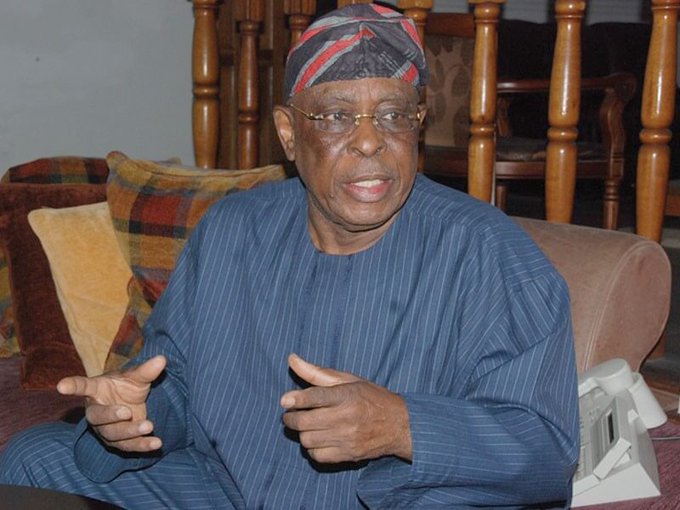Former Ogun State Governor Olusegun Osoba addressed the complex dynamics between outgoing leaders and their deputies at the 3rd Annual Conference of the Forum of Former Deputy Governors of Nigeria held in Abuja.
The conference, themed “Strategic Solutions for Good Governance, Food Security, and Sustainable Growth in Nigeria,” provided a platform for leaders to share insights into the political landscape in Nigeria.
Osoba pinpointed key factors behind why many outgoing presidents and governors often refrain from supporting their deputies’ ambitions to succeed them.
He highlighted the role of distrust and suspicion in this political phenomenon.
Osoba stated that the lack of support for deputy governors and presidents is not limited to Nigeria.
He noted that this issue is prevalent across the globe, drawing a comparison with the relationship between former U.S. President Bill Clinton and his Vice President Al Gore.
“Al Gore contested the presidency but did not get Clinton’s full support because he feared Clinton might be a liability to his campaign,” Osoba explained.
This comparison underscored the idea that outgoing leaders may worry about how their political legacy will be affected by their deputies.
He emphasized that this lack of trust can hinder a smooth political transition.
While Osoba acknowledged that it is rare for deputies to ascend to the presidency or governorship, he also expressed optimism about the future.
“There remain opportunities for such individuals in Nigeria,” he stated.
He pointed to the presence of young, passionate leaders at the conference, suggesting that one of them might eventually become the president of Nigeria.
This hopeful perspective highlights the potential for new political dynamics in the country.
Osoba also expressed deep concern about the rising trend of governors orchestrating the impeachment of their deputies.
This practice has been a source of significant political tension in various states.
When asked about potential constitutional amendments to protect deputies, he was skeptical.
“There is little anybody can do about it,” he remarked.
He explained that if the State House of Assembly is aligned with the governor, they can easily impeach a deputy.
This statement reflects the complex power dynamics at play within Nigerian politics.
Rather than relying solely on legal frameworks, Osoba stressed the importance of fostering better relationships between leaders and their deputies.
“It is not by law but by relationship,” he said.
He urged for cooperation and mutual respect between leaders to create a more stable political environment.
Osoba’s call for improved relationships suggests that a cultural shift may be necessary to ensure the political stability of future administrations.
During the conference, Dr. Abdullahi Ganduje, the National Chairman of the All Progressives Congress (APC), also weighed in on the challenges faced by deputy governors.
He likened the role to theological debates, pointing out that “even in theology, God has no deputy because of its controversial nature.”
Ganduje highlighted that a leader does not have control over their continuity in office.
“If a leader falls sick or dies, someone has to take over,” he noted.
This statement underscores the inherent uncertainties in political leadership and succession.
Ganduje suggested that ongoing discussions around the role of deputy governors may lead to necessary reforms.
“Maybe certain paragraphs can be included in favor of deputy governors,” he concluded.

